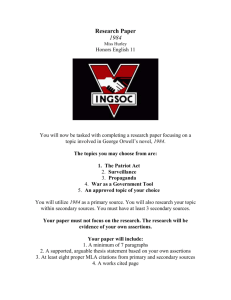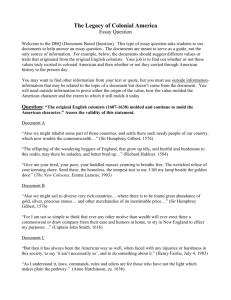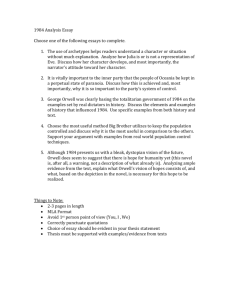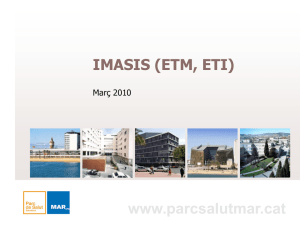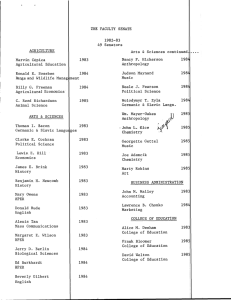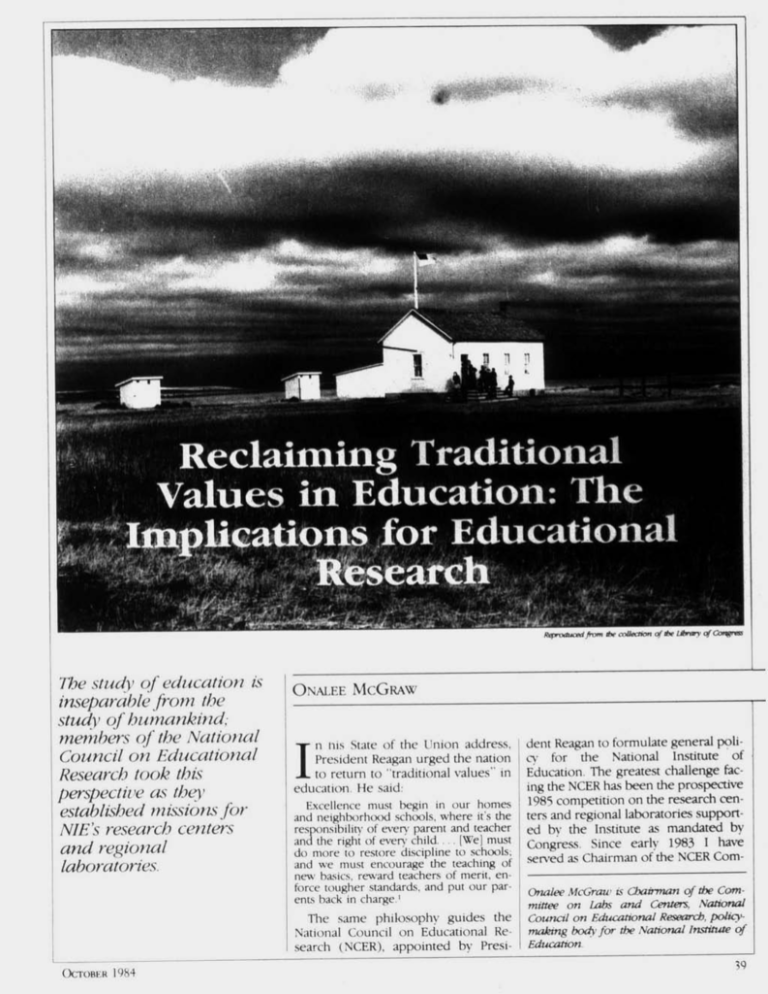
The study of education is
inseparablefrom the
study of humankind;
members of the National
Council on Educational
Research took this
perspective as they
established missionsfor
NIE's research centers
and regional
laboratories.
OCrOBER 1984
ONALEE McGRAW
I
In
nis State of the Union address,
President Reagan urged the nation
to return to "traditional values" in
education. He said:
Excellence must begin in our homes
and neighborhood schools, where it's the
responsibility of every parent and teacher
and the right of everv child.... [We] must
do more to restore discipline to schools;
and we must encourage the teaching of
new basics, reward teachers of merit, enforce tougher standards, and put our parents back in charge.'
The same philosophy guides the
National Council on Educational Research (NCER), appointed by Presi-
dent Reagan to formulate general policy for the National Institute of
Education. The greatest challenge facing the NCER has been the prospective
1985 competition on the research centers and regional laboratories supported by the Institute as mandated by
Congress. Since early 1983 I have
served as Chairman of the NCER ComOnalee McGraw is cbaN ian of the ComNatodal
mwee on Labs and Centm
Council on Educational Researtb, policmaking bodvfor de NationalInatih e of
Education.
39
39
mittee on Labs and Centers. Our task
in regard to the competition has been
threefold:
1. To articulate a philosophy of educational purposes underlying our policy.
2. To identify criteria to guide us in
selecting research priorities on which
NIE should focus.
3. To formulate a policy to implement President Reagan's views on education and, at the same time, to reflect
a consensus on federally supported
educational research priorities among
all those who have a stake in the
outcome of that research.
Philosophical and Practical
Cousderatons
As one who was active in the Civil
Rights movement of the early 60s,
having marched around the White
House as an exchange student to Howard University in the last year of the
Eisenhower Presidency, I share with
my fellow Council members and the
great majority of Americans a commitment to the proposition that all men
are created equal in the sight of God
and under the law.
What is at issue, however, is the vast
I
array of educational policies and programs put in place under the label
"equity" to accomplish this goal. As
education historian Diane Ravitch
commented, our schools came to be
treated like "sociological cookie cutters." She said that during this era, the
"forgotten questions" were rarely
asked in professional circles: "What
does it mean to be an educated person? What knowledge is of most
worth? Are the graduates of our
2
schools educated people?" Now these
same questions, asked by many parents over the years, are at last being
discussed by those in the education
community. "Excellence" has become
the new catch phrase for education
reform; it has replaced "equity" and
the notion of educators as "agents of
social change."
We might ask whether it is possible
to combine the two often conflicting
goals of equality and excellence into
one coherent philosophical proposition. I believe it is. Both of these goods
are combined in the fundamental affirmation that every person has dignity
and value. For me this tenet, so prominent in the Judeo-Christian ethic, is a
satisfactory resolution of the question,
at least at the theoretical level.
We make a serious mistake if we try
to avoid the questions of philosophy
that underlie all education issues, including those items now on the excellence agenda. Education issues can
never be separated from life's deepest
questions regarding man and his place
in the world. H. Thomas James, President of the Spencer Foundation, observed that "because the study of education is hardly separable from the
study of the nature of man, many of
the questions now under investigation
have deep intellectual roots in philos"3
ophy and theology.
Yet our most prominent spokesmen
on education reform avoid discussion
of first principles. Such questions as
parental rights and the exercise of
religious freedom are of paramount
importance to the public. Surely more
professionals have positions on these
questions than have been invited to
participate in the establishment forums addressing education reform in
the 80s.
In education, as in all other fields,
underlying philosophical assumptions
are determinative. It really does make
a difference whether one believes with
B. F. Skinner that the measure of man
is completely determined by scientific
laws of human behavior; or whether
one agrees with Carl Rogers that the
only reality that can and should exist is
inside people's heads; or whether one
concurs with C. S. Lewis that "certain
attitudes really are true and others
really false to the kind of thing the
universe is and the kind of things we
are.4
Surely, education is never valuefree. Recently Ernest Boyer stated:
We cannot have a value-neutral educa
tion... Communicating values is at the
very heart of education, whether it takes
place in a Catholic school, aJewish school,
a military academy, a Baptist institution, or
Public School 118.
I
EDUCATIONAL LEADERSHIP
Boyer went on to say:
The social and moral imperative of education is to help all students see the connectedness of things, an insight that touches the very foundation of morality-social,
personal and religious.,
Indeed, "seeing the connectedness
of things" involves understandings
about the cosmos, the nature of humankind and morality. However, these
fundamental topics, which are the basis for human conduct, can only be
addressed superficially in public
schools if consideration of the transcendent order is excluded by judicial
edicts that decree public schools to be
strictly secular institutions. The words
of C. S. Lewis again apply:
In a sort of ghastly simplicity we remove
the organ and demand the function. We
make men without chests and demand of
them virtue and enterprise. We laugh at
honour and are shocked to find traitors in
our midst. We
castrate and bid the geldings
be fruitful.6
Part of the difficulty is that because
of previous education practices there
is a dearth of Renaissance men and
women who can address education
issues in public debate drawing on
philosophy, history, literature, and
theology, as well as the findings of
social science. The mistake has been
to view education primarily in terms
of social science and then, further, to
view it primarily in terms of what can
be verified through quantitative measurement. To attempt to reverse this
trend, the NCER has called for representation from a wide variety of disciplines in the personnel makeup of the
labs and centers and in the peer review process that selects them.
Louise Kaegi, Editor and Public Relations Coordinator of the American
Bar Foundation, addressed this issue
in testimony at the NIE-sponsored
hearing in Chicago in 1983. Kaegi argued that many educators see educa1984
OCTOBER
OCrOBER 1984
tion as "fundamentally a process of
planned change where the overriding
purpose of education is therapeutic,
socialization, adjustment, social problem-solving, or simply moving through
a 'time and place' process that must be
managed and studied." 7
The public attentive to the patterns
of federal funding in the educational
marketplace of ideas in the 60s and
70s is, by and large, in agreement with
the views expressed by Kaegi. Many
parents may not be able to state these
views as eloquently as she does, but
they know what questions are worth
asking because nothing is more important to them than their children.
"We make a
serious mistake if
we try to avoid
the questions of
philosophy that
underlie all
education issues."
Selecting Research Priorities
One antidote to the problems outlined
above may be not only to restore
literature and history to today's students, as Diane Ravitch has so persuasively argued, but to restore the entire
liberal arts curriculum to today's educators.
Moreover, there are some strong
indications that the parameters of educational research have deepened and
widened in the recent past A landmark development in this regard was
the publication of Michael Rutter's Fifteen Thousand Hours: Secondary
Schools and Thetr Effects on Chilren, 5
which focused on the importance of
edbos in schools. The popularity of
case studies, such as Sara Lawrence
Lightfoot's The GoodHigh School Porlnaits of Characterand Culture dem-
onstrates that excellence in literary
prose and a comparative nonscientific
approach to describing important
questions in education are back in
style. 9 Gerald Grant, in his essay, "The
Character of Education and the Education of Character," addresses neglected questions about authority, coherence in transmitting moral values to
the young, and school climate.10
41~~~~
41
I
Alexander Solzhenitsyn discovered
this truth for himself and offered the
following insight:
Gradually it became clear to me that the
line separating good and evil runs not
through states, nor between classes, nor
even between political parties, but right
through the center of each human heart.
And every human heart.'[-
"The rediscovery of the importance
of shared values as more important
than abstract flowcharts and
bureaucratic mandates arrives none
too soon."
'Tom Mirga, Education Week, February
1, 1984. p. 100.
2Diane Ravitch, "Forgetting the Questions: The Problem of Educational Reform," The American Scholar 50 (Summer
1981).
3"President's Comments," from the 1980
Annual Report of the Spencer Foundation,
875 N. Michigan Ave. Chicago, Illinois
60611.
search directions at NIE. Chester Finn
of Vanderbilt University has discussed
the tension between school-level autonomy and systemwide uniformity;
he made the persuasive argument that
effective policies in education depend
on an authentic understanding of the
real nature of schooling. ' Michael Cohen expressed it this way:
Community in schools is dependent
upon more than shared instrumental goals.
It requires the creation of a moral order,
which entails respect for authority, genuine and pervasive caring about individuals,
respect for their feelings and attitudes.
mutual trust, and the consistent enforcement of norms which define and delimit
acceptable behavior. 2
In arriving at its criteria for missions
of the research centers and laboratories in the upcoming competition,
the Council took into account several
considerations:
1. Recognition of the primary rights
and responsibilities of parents in the
education of their children.
2. The importance of the principle
of subsidiarityv with a focus on studying
private and parochial, as well as public
schools, and concentrating on those
research questions that would have
greatest application for decisions
made at the school and district level.
3. To recommend missions for centers that all those who have a stake in
the outcomes-parents, practitioners,
education researchers, Congress, and
the Reagan administration-can agree
represent appropriate and useful utilization of taxpayers' money at NIE.
Bearing this in mind, the Council
approved the following missions for
NIE's research centers: Literacy; Professional Development of Teachers,
Improvement of Elementary Schools;
Improvement of Secondary Schools;
Improved Learning of Mathematics
and Sciences; Acquisition of Second
Languages; Student Testing, Assessment, and Standards; Education and
Employment; and Postsecondary Education.
-C. S. Lewis, The Abolition of Man (New
York: Macmillan, 1973), p 29
5
Emest L. Boyer, "Teaching About Values Called Key Part of Schxooling," Education Week, March 14, 1984
6
"If Only a Secularist Religion Is
Taught," C. S Lewis as quoted in E Earle
Ellis, Wall Street Journal, March 27, 1984.
'See also "The Person in the Process:
The Medium Is the Message," a commissioned paper by Louise Kaegi prepared for
National Institute for Education for the
Role of the Schools Project Planning Conference, February 22-23, 1983.
'Michael
Rutter, Fifteen Thousand
Hours:Secondary Schools and Their Effects
The rediscovery of the importance
of shared values as more important
than abstract flowcharts and bureaucratic mandates arrives none too soon,
for as Allan C. Carlson, Vice-President
of the Rockford Institute, reminds us:
The experience of the 20th century suggests that the roots of modern evil lie in
institutionalized public amorality. Liberty,
in fact, depends on a widelv shared conception of the desirable society. a value
scheme against which we can evaluate
normalcv and deviance, define our heroes
and villains, reward merit, dispense demerit, ground our laws, and resolve those
myriad conflicts that arise in daily life
on Children (Cambridge:
Harvard University Press, 1979)
9
Sara Lawrence Lightfoot, The Good
High School Portraits of Character and
Culture (New York: Basic Books, 1983)
'oGerald Grant, "The Character of Education and the Education of Character,"
Daedalus,Journalof the American Academy of Arts and Sciences 110 (Summer
1981).
"Chester Finn. "Toward Strategic Independence: Policy Considerations for Enhancing School Effectiveness," Phi Delta
Kappan (April 1984)
2Michael Cohen, "Instructional Management and Social Conditions in Effective
This kind of rediscovery is something that must be done by everyone,
not only those who consider themselves enlightened liberals, but also by
those who call themselves conservatives and who think that mere adherence to conservative political principles can be a substitute for the hard
work of restoration of our public philosophy.
Shared Values
Although many of the major decisions
regarding the initial phases of the lab
and center competition are currently
being made, the NCER will, of course,
continue to address educational reI
Schools," in School Finance and School
Improtemnent Linkages for the 1980s
(Cambridge: Ballinger, 1983), p 33
'Allan C Carlson, "The Rotting Core of
the American Experiment
and a Possi.
ble Cure," Persuasion at Work, a publica-
tion of the Rockford Institute, 934 N. Main
St., Rockford, IL 61103
'4Aleksandr I. Solzhenitsvn, The Gulag
Archioelago (New York: Harper and Row,
1973)
1
EDUCATIONAL LEADERSHIP
Copyright © 1984 by the Association for Supervision and Curriculum
Development. All rights reserved.

